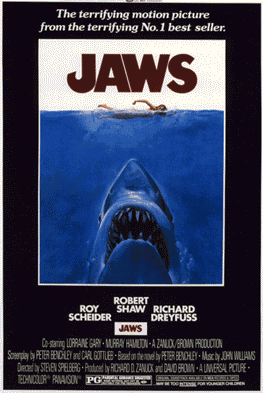![]() Kevin McKeever (AKA The Bank of Kev) is a cool guy and you should get to know him. Why? Because he is a well of information about the film industry and has helped produce shows such as Jackass, Kids Say the Darnedest Things, and Guiness Book of World Records. But for we geeks he worked on Mystery Men and currently works as a marketing coordinator for Robotech. So what I have for you is the panel he recently did for A-Kon 22 on Independent Film-making, that I attended and recorded. A lot of good questions were asked, a lot of good answers were given, and a fan-girl even spent five minutes arguing why they should stop making Superman movies.
Kevin McKeever (AKA The Bank of Kev) is a cool guy and you should get to know him. Why? Because he is a well of information about the film industry and has helped produce shows such as Jackass, Kids Say the Darnedest Things, and Guiness Book of World Records. But for we geeks he worked on Mystery Men and currently works as a marketing coordinator for Robotech. So what I have for you is the panel he recently did for A-Kon 22 on Independent Film-making, that I attended and recorded. A lot of good questions were asked, a lot of good answers were given, and a fan-girl even spent five minutes arguing why they should stop making Superman movies.
[BANK OF KEV] Who here wants to be in the film industry?
(Several people including me raise our hands)
[BANK OF KEV] No! Give up now! It won’t happen! You will have to move to Los Angeles and you will go broke and you will wait tables and you will never make it! You don’t have what it takes! No, this is not the industry for you. You think you have what it takes to be in this industry? No you don’t!
Okay, who here still wants to be in the film industry?
(Several people including me raise our hands, although I am tempted to flip him the bird as I do so)
[BANK OF KEV] Good! Let’s say that you have passed. This is an industry that is built upon the word “No”. You will be told no over and over again, but no matter how successful you are you will still hear it. I guarantee you George Lucas still gets told no. There’s something you need to understand people. I am “successful” in this industry and I still get told no, but I find ways to work around that no so I can keep working and keep my future bright in this industry.
It’s very easy to get discouraged, because if you are being told no all the time, it gets discouraging, but you have to keep focused. Keep working, keep doing what you need to do to get ahead in this business.
Well now that I have totally destroyed your dreams, who here has any questions?
(Man wearing cat ears raises hands…. erm I mean, paws. It was a convention so some people were in costume)
[BANK OF KEV] Yes sir, you there in the cat ears or whatever they are.
[GUY IN CAT EARS] What’s your name?
[BANK OF KEV] I am Kevin McKeever. I handle marketing worldwide for the RoboTech franchise. And I also work for Fox, Paramount, Universal Pictures. I’ve also worked in feature films, I’ve worked in television, I’ve worked in animation and anime, and I’ve been working in entertainment professionally since the age of 16.
So, to the person in the back with glasses.
[PERSON IN THE BACK WITH GLASSES] Yes, do you know if going into a good film school would help you in your career?
[BANK OF KEV] This is an awesome question. I’m so glad you asked this. What’s your name?
[PERSON IN THE BACK WITH GLASSES WHO WILL SOON HAVE A NAME] Greer.
[BANK OF KEV] Okay Greer has asked this important question on if you should try and get into a “good” film school. You are probably thinking schools like NYU, UCLA, and school like that. I did not go to any of those schools. I was rejected by UCLA, I was rejected by USC, and I didn’t even try to get into NYU. I went to a school called Emerson College in Boston, which is a communication and performing arts school.
I’ll tell you something about film school. Film school is good if you use it the right way, if you use it as a way to learn. To learn the craft, to learn the equipment, to learn how to use things in a practical way, but at the end of the day all you get is a piece of paper that cost you 100,000$ to get. At the end of the day, that diploma doesn’t mean shit, to be blunt.
I really won’t care what film school you went to, but if you come to me and go “Hey Kevin, I’m an editor and work really well in Avid and here’s my reel”, you could have gone to West Texas Community College and if you can run an Avid really well and you are an editor and I need an editor…. guess what? I’m going to look at you and really seriously consider you. Don’t be discouraged, I had a friend come up to me and was in Los Angeles telling me “Kevin I can’t get into these film schools” and I told him to not worry about that and to learn your craft. Do what you say you can do and don’t lie about what you can’t. Don’t be discouraged if you can only get into a local school, because if you learn and are good at what you do that is what matters at the end of the day.
My Emerson College education was good, but it might get me an interview here and there, but at the end of the day people just want to know what you can do.
Yes over here in the red hat.
[GIRL IN THE RED HAT] What would be the best way into the industry after college if you want to be a director?
[BANK OF KEV] Wow. As a director for film? Excellent question, whats your name?
[GIRL IN THE RED HAT THAT WILL SOON HAVE A NAME] Avaline.
[BANK OF KEV] Here’s what you need to do Avaline. Focus on making a short film. And you might be thinking “Kevin, a short film? That sounds kind of expensive”, but you have to be making it dirt cheap. The good thing is you can be making them during or after college, and you find some actors which is very easy. You just say “Hey who wants to be in a short film?” and you’ll be amazed how many people show up”. Just say you are casting and you will get more head shots than you know what to do with. You’ll never open your mailbox again.
Just make a short film and build what is called your reel and then take that around. When I say a short film, I don’t mean a forty minute film, I mean like three or four minutes. Trust me, as an “executive”, when I look at something, say it’s your reel, my time is valuable. I don’t want to watch a forty minute short to see the story, because that’s a commitment, that’s like an episode of television.
 I want maybe a two-minute short that can show what you can do. If you can tell a story in two minutes or a minute, then wow, that’s a director I want to talk to. It won’t take me very long to say “Come on over, lets talk”. That’s how a lot of directors start, for example Steven Spielberg. That’s what he would do. He would direct these short films and eventually people saw them and said “Wow, that’s pretty good stuff. Let’s get this guy a real budget, a real crew, and some real actors.” And what does he go out and do? He makes Jaws.
I want maybe a two-minute short that can show what you can do. If you can tell a story in two minutes or a minute, then wow, that’s a director I want to talk to. It won’t take me very long to say “Come on over, lets talk”. That’s how a lot of directors start, for example Steven Spielberg. That’s what he would do. He would direct these short films and eventually people saw them and said “Wow, that’s pretty good stuff. Let’s get this guy a real budget, a real crew, and some real actors.” And what does he go out and do? He makes Jaws.
Now making a short film is tough, but that’s good and I’ll tell you why. Because it’s a training exercise. You aren’t spending a lot of money and you are learning a lot from the process. You’ll learn what’s right and what wrong and what works and what doesn’t.
Then when the time comes and you are actually getting paid, which probably won’t be a lot for your first gig, you’ll know what to do. When you do that it is important, because when you are on a set the clock is always ticking and the producers want to see their money being spent well. If you are sitting there going “Huh, what should I do?” that’s not enough. No, “Here’s where grip needs to be, electrician over here, actor #1 stands here, actor #2 stand over here and hit actor #1” is what needs to be done. Then a producer will see and think “Great, they know what they are doing”.
Great, next question.
[BANK OF KEV] Yes you in the red
[GUY IN THE RED] Yes, is Dallas a good place to get started in film?
[BANK OF KEV] Dallas actually is a good place and I’ll explain why. Production tax credits.
In Battle for Los Angeles, guess where it was shot. Louisiana. Why? One, because Los Angeles is extremely hostile to film making, believe it or not and two, there is a production tax credit in Louisiana. Things are shot here in Texas, because Texas has a production tax credit system. A lot of things are being shot in Michigan. The new Transformers is being shot in Michigan, Gran Torino was shot in Michigan strictly for the production tax credits. Now, this is good for people like you because look, it’s global, you can get involved and that helps you build practical experience.
So it’s a good place. It’s good for a lot of people such as yourselves, but awful for the people who moved to Los Angeles, because all of these productions are all leaving. You would be shocked how many of these big budget films that would never have thought of leaving Los Angeles twenty years ago are now all being shot anywhere but Los Angeles for the purpose of production tax credit. And that is just in the U.S. There is also Australia, Vancouver, Eastern Europe, and I mean you’d be amazed, because a lot of Hollywood productions are going over there.
Most of the scores are now done in Eastern Europe, because the LA film scoring community has shrunk. It used to be there was over 2,000 musicians in the musicians union and it has shrunk to 400 at tops, just to give you an example of how it is shrinking.
…………………..
THAT ENDS IT FOR PART ONE OF THIS ARTICLE. IT WAS A LONG, BUT AWESOME PANEL AND PART TWO WILL BE UP IN A FEW DAYS.
















Rather interesting, especially about the “schooling” part. I’m an “aspiring Chef” (at least that’s how I’ll keep it for now) and have known too many people who have never worked in a kitchen and decide to drop money on a Culinary Program, and in the end get no where, end up hating it, drop out, etc… It’s kinda nice to hear from someone who went to community college and is doing well, and actually sharing that information with others. Good read, sir.
My sister is in Shreveport and Houston all the time to film for the exact reasons listed above: it’s cheaper, and in most cases the city or state will pay the film crew to shoot there. I remember, before it was cancelled, an episode of CBS’s The Unit was shot right here in Dallas. They cordoned off a section of the downtown area to film a chase scene on foot, and they requisitioned a SWAT helicopter to fly between the buildings…all because it was cheaper than if they had filmed it in Burbank.
Also, Los Angeles is bankrupt beyond saving and about one major earthquake away from drifting off into the Pacific. Why anyone would want to move there for a job is beyond me.
Damn.. good shit. The whole tax credit stuff is very interesting. It was very informative, but not in the boring way lol.
Very informative. Lots of this stuff I had been told before, but always nice to see that people keep saying the same things.